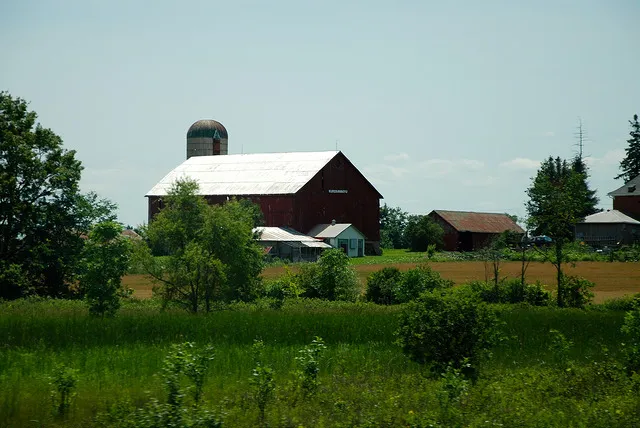On December 6, the Government of Ontario’s Minister of Economic Development, Job Creation and Trade introduced Bill 66, Restoring Ontario’s Competitiveness Act, 2018. The proposed Bill is framed as an attempt to cut red tape and facilitate the development planning and approvals process for business. However, looking beyond the rhetoric, we believe it could result in real, adverse, and potentially irreversible effects to Ontario’s land, housing, and climate. If Bill 66 becomes law, it will allow new and potentially large-scale developments to be approved without the sound environmental protections and evidence-based growth management policies that ensure healthy and sustainable communities—including allowing development in the Greenbelt. The Bill will also dramatically weaken the public’s right to comment on development projects that might affect the environment, including access to clean water, natural heritage systems and agricultural lands.
Bill 66 will amend the Planning Act to give municipalities unprecedented powers to create a new type of zoning bylaw, called an “open-for-business planning” tool. What do these sweeping amendments in Bill 66 mean? Here are the top concerns that Ontarians need to know about:
Development without an end-game
Currently, the planning process requires development proposals to follow provincial and municipal policies designed to protect Ontarians’ health and quality of life and support a strong economic future, and a key component to that is protecting the province’s natural environment such as the Greenbelt. Under the proposed Bill, should a municipality enact an open-for-business planning bylaw, the bylaw or development projects pursuant to the bylaw would be exempt from essentially all substantive land use, transportation planning, and environmental statutes, such as the Planning Act, Places to Grow Act, Oak Ridges Moraine Conservation Act, Greenbelt Act, and Ontario Planning and Development Act. At the municipal planning level, the development project would not need to conform to official plans or go through site plan approval—all due diligence requirements for any development. Overall, with the proposed changes, any development project could be built without checks and balances, and may undermine the Growth Plan’s overarching vision to strategically grow in areas with existing or planned infrastructure and services.
Public health risks
Development projects pursuant to open-for-business planning bylaws will bypass obligations to meet critical environmental protection policies that ensure Ontarians have access to clean drinking water and a clean environment, such as the Clean Water Act and Great Lakes Protection Act. Bill 66, coupled with new environmental management practices approved in another recent Bill (Bill 57) would significantly weaken private businesses’ responsibilities to ensure that business practices do not have adverse impacts to Ontarians’ health and natural environment, for example access to clean drinking water. The impacts of weak environmental protections have led to serious public health concerns related to contaminated water. The Clean Water Act was introduced to strengthen protections for drinking water at its source, and a direct response to such concerns.
Weakening of the democratic planning process
Currently, provincial and municipal planning processes require minimum public consultations for the public to provide input into a development proposal. Under this proposed Bill, a municipality is not required to hold public meetings if it decides to approve a development using an open-for-business planning bylaw. In order for a municipality to use an open-for-business planning bylaw, a municipality must pass a resolution requesting the Minister of Municipal Affairs’ approval, which the Minister can do at their discretion. The bylaw comes into force once the municipality has received approval from the Minister, 20 days after it is passed, or a later day that may be specified by the Minister. However, unlike other current zoning bylaws, the municipality is not required to give notice of or hold a public meeting prior to passing an open-for-business planning bylaw. It is only after passing the bylaw that the municipality must give notice to “any persons or public bodies the municipality considers proper” within 30 days — 10 days after the bylaw has already come into effect. Furthermore, an open-for-business planning bylaw cannot be appealed to the Local Planning Appeal Tribunal.
A fragmented and incoherent approach to economic development
Rather than advancing a regional economic development strategy or approach, this proposed tool may encourage fragmented economic investments across the province and put municipalities in further competition with each other for employment development. As the proposed Bill is written, the Minister of Municipal Affairs has the authority to approve the bylaw in one jurisdiction but not in another, or to impose different conditions across municipalities. This makes for an incoherent economic development strategy for cities that have integrated and connected economies such as those in the Greater Golden Horseshoe.
The proposed open-for-business regulation aims to create job growth by requiring that development projects meet a minimum job creation threshold, but it is unclear how this can be determined in a way that is not arbitrary. This is in contrast to how planning is currently guided, using evidence-based intensification targets for resident and job densities, which are informed by population and employment growth forecasts.
Details matter, but planning fundamentals matter more
At the Pembina Institute, we recognize the need for public policies that allow Ontario municipalities to respond to changing and growing economies and populations and to ensure that development keeps pace with growth — but not at all costs. While further details may be offered in forthcoming regulations regarding preconditions and applicability of an open-for-business planning bylaw, what matters more is that government does not undermine the building blocks and fundamentals of planning and the environmental policies in the province. Ontario’s regulatory framework must evolve in a way that not only attracts business investments but also protects Ontarians from risks like a changing climate and drinking water contamination, and protects our farmlands and green spaces. The Bill 66 changes to the Planning Act take us in the wrong direction.







